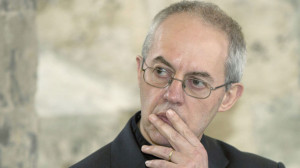The notes from my sermon on Matthew 5 21-37
St Paul – fed with milk not with solid food – you’re going to get some solid food this morning – I’m going to talk for about 20 minutes, and it may raise lots of questions that you may wish to discuss with me privately – please do so
Jesus in St John – there are some things that you cannot cope with yet; the Spirit will guide us into all truth – well, we in the church are on that journey with the Spirit
~~
Jesus says that to look at people lustfully is already committing adultery in the heart
lust is a deadly sin – remember, sin is anything which breaches relationships, either horizontally with other people or vertically with God
so lust is essentially a corruption of love – it still looks outwards from the self, but it treats others only for what they can provide for our own bodily appetites; rather than giving other people their own dignity, other people simply become means to our own ends
this runs completely counter to everything that Jesus teaches and embodies
having said that lust is a deadly sin, it is worth pointing out that on the scale of sin – lust is the least dangerous of the deadly sins as it is misplaced love, not an absence of love – need to tackle the pride which is the most deadly sin, as that is when a person has become completely curved in upon themselves
everything that Jesus teaches and embodies, which is all about recognising the human significance of all those who are not seen as worthy by the religious establishment of his time, such as the Samaritan woman at the well
his is a movement of inclusion, to bring into a relationship with God all those who had been excluded, the Samaritans and the tax collectors, and lets not forget that he teaches that the prostitutes get to Kingdom ahead of the priests – which is why priests can find Jesus unsettling
~~
so let me say something about the priests – and before I go on I should say that I am very conscious of the other elements that Jesus teaches in this passage, especially that those who call other people fools are liable to the fires of hell
so with that in mind I would like to talk about the House of Bishops of the CofE
they have recently released a document about same sex marriage in which they have reaffirmed the traditional teaching that marriage is a union of one man with one woman for life, and that any expression of sexuality outside of that context is sinful
in saying this, they are drawing on a perspective about what is the true end or purpose of sexuality, that is, what sex is for. The tradition, derived in part from Aristotle the Greek philosopher, says that the purpose of sexuality is procreation, and any form of sexuality that is not open to the possibility of procreation is therefore deficient and more or less sinful, dependent on how far it is driven by lust
this is why the Roman Catholic church does not accept contraception – and I can understand why they do so, for the implications of accepting contraception are quite profound, and would undermine a large part of the RC teaching on sexuality
however, the Church of England has a different perspective, and in the teaching of this church, marriage is instituted of God for three reasons, not just one – for the procreation of children, for the right ordering of our passions, and for the mutual society and help between a couple
this is, in part, why the Church of England some eighty years ago accepted the use of contraception by married couples – that is, the Church accepted that there was an expression of sexuality that was not open to procreation but was nevertheless not sinful, for it served the wider purpose of enhancing the love between a couple – the right ordering of the passions fostering the mutual society within the marriage
[a brief aside: to my mind there are still question marks around how we are to understand marriage, as the traditional core of marriage – around providing a structure for procreation – has now been almost entirely eclipsed, and I believe that we need to do some serious theological work specifically focussed on procreation, and establishing a parental covenant or something like that, because we need to take parenting more seriously]
the trouble for the church is that, once this step has been taken, there isn’t a coherent place to stand from which to reject same sex relationships. Let me explain that a little further – if we accept that it’s OK to have sexual expression when it is not open to procreation, then it means that we accept that non-procreative sex is valid when placed in the context of the right ordering of our passions and the mutual society of the couple concerned. There is then the possibility of what we might call holy passions amongst those who are not both fertile and straight
~~
to reject the validity of same sex relationships must then rest upon a more spiritual argument, which is what our House of Bishops needs to be concerned with
now one line of argument is simply to say ‘Scripture says…’ It is undoubtedly the case that Scripture is uniformly negative about the sexual expression of homosexual relationships. However, to rest the argument at that point is, at best, sub-Christian. We are not a community that does without rules, so long as those rules are rightly understood as being based upon grace and serving a higher purpose.
Furthermore, the church has the authority to change the rules that we live by – this is an authority explicitly given by Jesus himself to the disciples, to Peter in particular – that what we bound on earth will be bound in heaven and what we loose on earth shall be loosed in heaven.
We are given a worked example of how the church is to change the rules in the description of the council of Jerusalem in Acts, when there was an argument over whether the gentiles had to be circumcised in order to enter the Kingdom. Scripture was very clear that if a man wasn’t circumcised then he couldn’t join the community – but ‘it seemed good to the spirit and to the [disciples]’ that this rule should be discarded.
So the question isn’t about what scripture says in terms of a rule for us to follow, but what is the deeper spiritual question at issue. So, to go back to what Jesus says in our reading this morning, the spiritual argument has to be something along the lines that a gay relationship, in contrast to a heterosexual one, is necessarily characterised by lust rather than love. That a gay relationship, in contrast to a heterosexual one, is not pure.
That position is at least a coherent one, and it is one that has the benefit of being shared by the tradition, and by the majority of Christians in the world.
Yet I do not agree with it, and on this issue I would align myself (with the caveat about marriage I mentioned earlier) on the progressive side of the church debate. Whilst the church hierarchy is still arguing about this, our wider society, including the majority of those in our congregations, has quite clearly come to the conclusion that gay relationships are simply human – yes, open to lustful exploitation, but also vessels for the amazing grace of god – that within a committed relationship it is for the couple themselves to determine the right ordering of their passions to foster the mutual society, help and comfort appropriate to their relationship. In this they are treating homosexual relationships on the same level as heterosexual relationships – they are including all within the covenant community – and this seems to me deeply in tune with what Jesus was pushing for.
This seems to me to be what the Roman Catholics call the ‘sensus fidelium’ – the mind of the faithful. We are not there yet, but that seems to be the way that, at least in this country, we are being led, and I do see that as a movement of the spirit.
~~
Our Bishops, however, are in the almost impossible position of trying to reconcile two sides that have become more and more opposed, and the dominant impression that I have is that they are acting from fear – that they are terrified of causing disunity both within the Church of England and between the Church of England and the wider Anglican Communion. I am not without sympathy for that – it seems like an impossible job to me
but there is one area where I would want to raise a criticism against our Bishops, and it is this: within the report, indeed within all the ways in which our Bishops discuss this issue, the gay and lesbian community are seen as ‘other’ – not seen as within the church, but seen as a problem amongst those who are outside, to be touched only at a distance
I don’t believe that we as a church community will be able to make progress on this question until we accept that we are talking about a part of ourselves, part of our own body, when we talk about the differences between the homosexual and the heterosexual, and the right ordering of our passions.
Those who are baptised are a new creation, and their identity is found first and foremost in Christ. That must be the starting point for our conversations – we have to take our baptism seriously, and consequently, we have to listen to what the Spirit is saying through that part of our body which is gay.
~~
Christ did not come to lay a burden upon us that we cannot bear; rather, Christ came that we might have life and have it in all its fullness. That fullness of life does not come when we surrender to our passions and allow them to dominate us; nor does it come when we needlessly tear out pieces of ourselves out of a misguided quest for spiritual purity.
We need to start from the love of God, that Christ came not to judge the world, but that the world might be saved through him. We need to begin from a place of rest, resting in God’s love for us, and allowing that love to lead us into all truth. We will not get to God by making ourselves pure; no, it is by allowing God’s love to lead us that we will become pure in heart.
May God give us the strength and the grace to remove all lust from our hearts and minds, that we might truly be vessels for his inclusive love. Amen.





You must be logged in to post a comment.